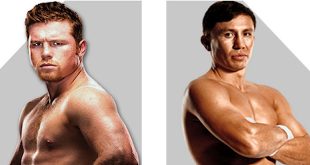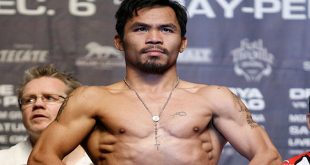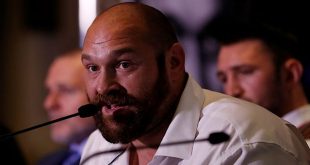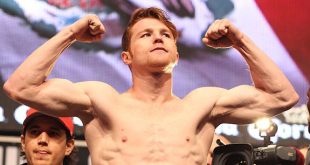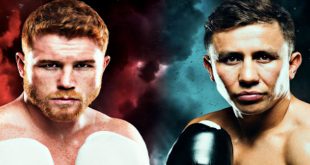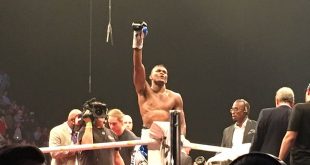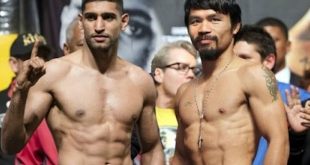It has now been almost two weeks since the Closing Ceremony brought down the curtain on the London Olympics. The venues are being either tidied up for the Paralympics or returned to their traditional usage such as Lord’s for the final test between England and South Africa.
The overall postmortem’s of Team GB’s performance at the Olympics, which saw 29 Gold medals, the highest ever haul since the 1908 games, which were also held in London, has started.
While the rowing team delivered the usual amounts of success under the excellent system headed by the German Head Coach Jurgen Grobler, Britain topped the medals table at the regatta, which was located at Eton Dorney, and the cycling team, led by Tour De France winner Bradley Wiggins, continued to built on their success on track and road.
But it is the boxing squad that got the headlines in the morning newspapers. The boxing squad of 10 also matched the expectation that was placed up on it.
The success that the GB Performance Squad achieved may have not have attracted much overall headline success in the mainstream press until Nicola Adams and Anthony Joshua served the two golds, but to many a boxing observer the overall success it is not a surprise.
The foundations for the success were built in Beijing back in 2008 when James DeGale delivered gold at Middleweight for the first time since Chris Finnegan in Mexico City back in 1968, and bronze medals for David Price and Tony Jefferies respectively, and respectable performances from Joe Murray and Khalid Yafai, amongst others.
British amateur boxing seemed on the up with the Beijing success despite being medaless in Milan back in 2009, although it can be argued that this was effected by the majority of the Beijing squad such as Price, DeGale, Jefferies and Frankie Gavin, who failed to make the weight in Beijing.
However, the ABA had also appeared to practically shoot themselves in the foot by choosing not to renew the contract of Terry Edwards, the man who created the success and his replacement Kevin Hickey leaving after three months for personal reasons.
But they managed to redeem themselves (not without controversy, however) by appointing Robert McCracken as the new performance director back in 2009. The appointment caused ructions with the amateur system. This is due McCracken’s links with the professional ranks through training three-time Super-Middleweight World Champion Carl Froch, a man whom McCracken has worked since Froch turned professional 2005.
As a result of these links, McCracken was not allowed to work the corners of the fighters who are currently involved with the GB Performance Squad under his tutelage, but was still allowed to attend all championships sanctioned by the AIBA.
Despite this, the success has flowed and shows that the Olympics was no overnight success, rather three years of hard work to build an effective infrastructure around the team.
It’s through McCracken’s links to the professional game that has seen the resurgence in the amateur programme, based in Sheffield at the England Institute of Sport. As a result, the fighters on the Elite programme have benefited not only through McCracken’s tutledge but also through sparing top line British fighters such as Froch and British Light-heavyweight king Tony Bellew, amongst others.
The benefits were immediate. At the 2010 European Championships in Moscow, which was the first major tournament under McCracken, Team GB delivered five medals, with silver for Khalid Yafai at Flyweight, Iain Weaver at Featherweight and Thomas Stalker at Lightweight and bronze medals for Andrew Selby and Gamal Yafai.
The following year in Ankara, the team struck gold when Welshman Freddie Evans won at Welterweight, Stalker stepping to Light-Welter to claim a silver losing to Irishman Ray Moylette in the final and a Bronze medal for Charlie Edwards down at Light-Flyweight.
In the same year at the World Championships, the last chance to qualify for the men, more success came with three silver medals with Hull’s Luke Campbell, a two time ABA Champion delivering at Bantamweight, Selby adding a World Silver to European bronze, and up at Super Heavyweight, Anthony Joshua winning silver, and delivering (arguably) the biggest upset of the tournament when he defeated Beijing Gold Medalist and World Champion Roberto Cammarelle on points, making him a force to be reckoned with.
There was no doubt that a significant amount of confidence and momentum was created and gained from this success. But one question remained. Can they deliver in their home Olympics?
The answer proved to be a resounding yes, but not without heartbreak as Nicola Adams followed up her gold medal winning performance at the European Champions performance by becoming the first Woman to win a gold medal in boxing.
She did this by first defeating the Bulgarian Stolya Petrova 16-7 and then defeating five time World Amateur champion Mary Kom, who is widely regarded as one of the finest female amateur boxers ever, by 11 points to 6, before dispatching the number 1 women’s flyweight Ren Cancan 16-7, even knocking her down en route to the gold medal which Adams celebrated by doing an Ali shuffle.
However, neither Natasha Jonas or Savannah Marshall would experience the same amounts of glory that the likable Adams achieved.
Jonas defeated Quanitta Underwood 21-13 in the round of 16 before losing to Ireland’s golden girl Katie Taylor 26 points to 15, while Marshall, the favourite to take gold at Middleweight, lost to the Kazakh Marina Volnova 16-12. For the 21 year old Marshall there is still the opportunity for Rio in 2016 if she so wishes.
For the gentlemen within the team, Andrew Selby reached the quarter finals at Flyweight before losing to eventual gold medallist Robeisy Ramirez 16-11. At Lightweight, Josh Taylor lost to Italian Domenico Valentino 15-10, while at Light-Welterweight captain Tom Stalker defeated the Commonwealth gold medallist Manoj Kumar 15-10 before suffering an utterly heartbreaking loss to the eventual bronze medallist Uranchimegiin Mönkh-Erdene 23 points to 22 and therefore making his own contribution to the crying games that London has been known as.
Team GB lodged an appeal believing that Stalker had won, but alas, such an appeal would prove to be vain. At 24, Stalker may choose to go again in Rio to avenge this injustice if he so wishes.
At Welterweight, the young Welsh star Freddie Evans clinched a silver medal but rode his luck along the way by having a count back win against the Custio Clayton before gaining a 1 point win over World Champion Taras Shelestyuk before going down 17-9 to the Kazakh Serik Sapiyev, who would also clinch the Val Barker Trophy for the best boxer in the tournament.
At 21 years of age, Evans, like Marshall and Stalker, could go again for Rio if he does not get an offers to join the professional ranks. Evans would not be the only man to benefit from count back. At Middleweight, Lowestoft’s Anthony Ogogo squeezed past European champion Evhen Khytrov in the last 16 before losing to the Brazilian Esquiva Falcão, leaving him a bronze medal.
This was a terrific achievement, considering his mother’s terrible fight with cancer and his recovery from career threatening shoulder surgery. At 22 years old, Evans too could have another go at the Olympics in Rio if he is not seduced by the riches that the professional ranks can offer an Olympic medallist here in the British Isles.
This leaves the two gold medallists, Luke Campbell and Anthony Joshua. The 22 year old southpaw Bantamweight from Hull, Campbell, an ABA Senior champion, displayed terrific footwork and hand-speed, switching effectively between his opponents head and body to score so well that he won gold against his friend John Joe Nevin of Ireland in the final after dispatching Satoshi Shimizu, a second lieutenant in the Japanese Self Defence Force, in the semi final.
After winning the final, the delighted Campbell, continuing the theme, burst into tears of utter joy on having his hand raised in triumph, joining the likes of Joel Casamayor and Guilermo Rigodoneaux as Olympic gold medallists.
In the land of the giants, the London born Joshua had a tough journey. In his opening bout, he defeated the slicker more elusive Erislandy Savon, nephew of Felix, the iconic three time Olympic Gold medallist at Heavyweight, by just a single point, much to the delight and relief of the knowledgeable boxing public in the Excel Arena.
Following his dispatching of Savon, Joshua then defeated the Chinese silver medallist from Beijing, Zhang Zhilei, before facing the giant Kazakh Ivan Dychko, and then in his toughest test of the tournament, his old advisory the Italian gold medallist from Beijing, Cammarelle.
Despite the obvious height and reach advantages, that the younger Joshua had over the Milanese police officer, he was at times unable to hold off the shorter and more experienced Italian and was even backed into corners, however Joshua was able to slip his way out back into the middle of the ring, but he did slip behind on the cards.
In the final round, Joshua went on an all-out attack, knowing he had to stop Cammarelle to deny his place in history. Joshua did not produce a stoppage but drew level, cue-ing yet another count back. The crowd waited in anxiety for the decision of the final gold medal of the tournament, while the judges had their cards counted up.
Then anxiety and tension was replaced by euphoria as Joshua was announced as the Olympic champion, joining the pantheon of professional greats such as Lennox Lewis and Wladimir Klitschko, who were present in the crowd, that have won gold medals.
Klitschko is rumoured to be interested in signing Joshua for his fledging K2 Promotions company, however Joshua has stated that he wishes to remain an amateur in order to win the World Amateur Championships.
The final British tally rang up to three gold medals, one silver and one bronze medal, success above the initial expectations and it shows the progress that Team GB have made under the careful tutelage of McCracken and his team.
However, as with all Olympic cycles, the talk of the professional game has already been mentioned. But recent reforms to the amateur game, along with the introduction of World Series of Boxing in which amateur boxers compete in professional style bouts for franchises, may make the decision to remain amateur tempting for a little longer.
In any case, from a British perspective, the success at the Olympics shows that the future of British boxing burns brightly.
 Boxing News Boxing News
Boxing News Boxing News
